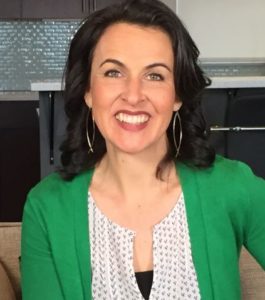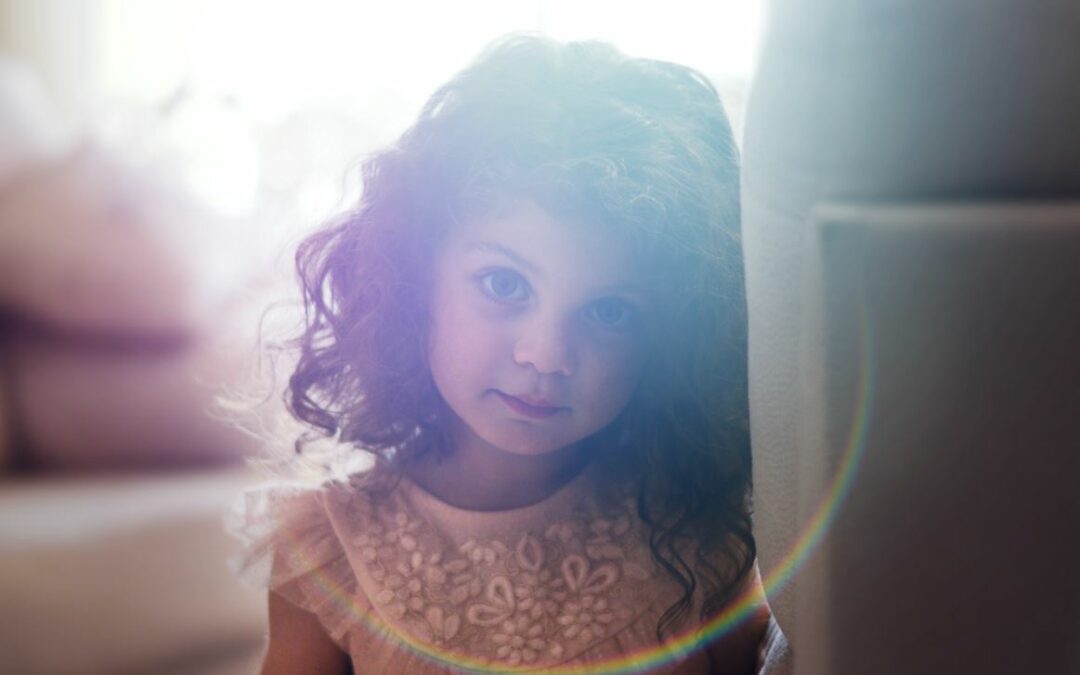Much of today’s cultural narrative centers on “me” and “what I want.” While a what-I-want focus might have utility when we consider goal setting and choosing a path forward in life, it can also have a dark side. How often do we stop to consider the impact of “what I want” on others?
In today’s article, Katy Faust, opens our eyes to some of the many behaviors and attitudes that are impacting children. Be prepared; you might be surprised. Katy gives us plenty of food for thought in today’s article.
Faithfully for Families,
Wendy Wixom, President
Adult Desires Above Children’s Needs?
Contributed by Katy Faust – September 28, 2021
Those are the first words of the introduction of my new book, Them Before Us- why we need a global children’s rights movement. I explain, “It was never my intention to jump headlong into the public debate around marriage, family, and parenthood. Sure, I have strong opinions about these issues. I also have a unique perspective from both my own childhood (child of divorce whose mother re-partnered with a woman) and as an adoptive mom. Except, I also like to keep my friends—and, unfortunately, as many of us have learned, keeping friends often means keeping quiet if your opinions are not politically correct.”
What finally forced me to speak up? It was when I realized that on the topic of marriage (and as I later discovered, every other family issue), culture, media, and public policy was obsessively focused on what adults want and rarely, if ever, acknowledged what children need, and indeed, have a right to. No one seemed willing to put them (children) before us (adults).
This was first evident to me in the gay marriage debate when advocates declared “kids don’t care if they have two moms or two dads.” Because what that means, in reality, is “kids don’t care if they have lost their mom or dad.” After working in youth ministry for a couple of decades and serving as the assistant director of the largest Chinese adoption agency in the world, I knew that parental loss often left a lifelong wound.
Mother-and father-loss are not new to the human experience. Generations of fathers have been lost tragically through war, and mothers used to routinely die in childbirth. But these days, children generally are not experiencing mother and father loss due to tragedy, rather they are losing their mother and father intentionally because adult desires are prioritized over their rights.
Voices you’ve never heard before
In our new book, my co-author and I address these desire-based losses, and we did it by allowing 100+ children who have lived through these new expressions of the modern family to tell their own stories.
Stories of ongoing transition and loss post-divorce:
“I have a lot of experience with divorce, far too much to ask of any one person in my opinion. My parents divorced when I was three and went on to subsequent marriages, divorces, different children, a lot of back and forth between “two homes,” and a lot of chaos. By the time I was about twenty-two, I had experienced three divorces: my own parents’ divorce and my dad’s two subsequent divorces.”
Stories of mother-hunger and father-hunger from kids with two moms or two dads:
“Am I the only one who feels this way? Am I a bad daughter because I wish I had a Dad? Is there anyone else who has 2 Moms or 2 Dads who wonders what it would be like if they were born into a normal family? Is there anyone else who wants to be able to use the word normal without getting a lecture on what is normal??? I don’t know my real father and never will. It’s weird but I miss him. I miss this man I will never know. Is it wrong for me to long for a father like my friends have?”
Stories of sperm- or egg-donor-conceived kids struggling with their identity:
- “I feel like I can’t discuss [my conception] with anyone because nobody would understand. Hell,
- I don’t understand. Some of these feelings I know are not rational, yet I can’t help feeling the way I do.
- I feel like I don’t know who I am.
- I feel like I am not real.
- I feel like a science experiment.
- I feel like I’m a fraud.”
Pro-marriage and pro-family advocates have always had the most compelling research and data. For the first time, our book amplifies the most compelling voices as well.
Ten chapters of children-before-adults truth
Each chapter of Them Before Us- why we need a global children’s rights movement could be a book in and of itself, but we distill the most relevant studies on each topic that provide decisive evidence of the harm children suffer when their fundamental rights are sacrificed on the pyre of adult desire.
Examining the trauma children have experienced due to the actions or choices of the adults in their lives revealed a lot. We identified principles of which our society has lost sight, and modern practices that profoundly impact children in ways we never imagined:
- Children have a right to their mother and father. Therefore, adults have the same responsibility to defend a child’s right to his or her parents as they do to defend a child’s right to life. It’s a right to which both international treaties and the broken hearts of children testify. The cost paid by children when we dismiss their right to parental relationships manifests in diminished physical, mental, relational, academic, and emotional health.
- Biology matters in the parent/child relationship. Studies overwhelmingly reveal that biological parents are more connected to, invested in, and protective of their children. They also grant a child their biological identity which children crave. Heroic stepparents do exist, and we are grateful for that, but, statistically, households with unrelated adults result in diminished outcomes for children and drastically increase the likelihood that they will be neglected and abused. The loss of a child’s biological parent through death and divorce due to abuse is a tragedy, but intentionally severing that bond to satisfy an adult’s desire is an injustice.
- Gender matters in parenthood. Men and women are gloriously different, and those differences manifest most profoundly in parenting. So crucial and distinct are the ways in which dads and moms communicate with, play with, and discipline their children, that many researchers eschew the term “parenting,” instead favoring “mothering” and “fathering.” Men don’t mother, and women don’t father. Kids need, crave, deserve, and have a right to both.
- Marriage matters to kids. Contemporary adults are arranging their relationships in myriad ways- cohabitation, polygamy and polyamory, sologamy, same-sex relationships. Each of these romantic unions threatens the rights of children. Some of the aforementioned are considered marriage by society, but for children and children’s rights activists, “marriage” refers exclusively to the only relationship that unites the two people to whom children have a natural right – one man married to one woman. Every place gay marriage is codified, the rights of children are weakened as parent/family laws downgrade the importance of the biological parent-child connection. Marriage is a social justice issue for children, and effective advocates make their case based on natural law.
- No-fault divorce has harmed children. Divorce is not a one-time event for children; it is often the beginning of life-long instability and can result in losing contact with their non-residential parent altogether. Kids don’t “get over” divorce; rather, divorce impacts children’s mental, emotional, physical, and academic health for the long term. Divorce is categorized as an Adverse Childhood Experience (ACE) which often leads to other ACEs. While there are serious cases of abuse, adultery, and abandonment where divorce is justified, the fact is, most contemporary divorces end low-conflict marriages. Children are best served when adults mend their marital hardships, rather than burden their kids with their dissolution.
- Same-sex parenting is not the same as a mom and dad. When researchers study family structure, they agree on three things- biology matters, gender matters, and children suffer trauma when they lose a parent. Thus, studies that claim there is “no difference” between households headed by same-sex and opposite-sex couples are clearly flawed. This is due to the fact that children of same-sex parents will always be missing a biological parent, will lack the dual-gender parental influence all kids crave, and each of them, to varying degrees, will deal with the trauma of parental loss. In addition, these children often grapple with mother- or father-hunger and can feel pressured to affirm their parents’ choices and lifestyle. Gay men can be wonderful fathers, but they cannot be a mother. Lesbians can be great moms, but they can never be a dad. Kids need, deserve, and have a right to both.
- Sperm and egg donation creates mental and emotional harm. Regardless of whether they are raised by same-sex, opposite-sex, or single parents, children created via sperm or egg donation struggle with their identity, and they long to know their missing parent(s) and half-siblings; they experience more household instability and live with the fact that they were sold by one or both of their parents and purchased by another. We empathize with those who desperately want but cannot have children, but would-be parents need to consider the damage they inflict by intentionally severing a child’s relationship with one or both biological parents.
- Surrogacy is not a child-friendly process. Surrogacy renders women optional by segmenting one entity — one mother — into three separate women: genetic mother, birth mother, and social mother. But for children, none of these mothers is optional. The intentional and systematic separation of surrogate children from their mothers has resulted in dystopic, dangerous scenarios; whether it’s men creating little boys for the sole purpose of sexual exploitation or millionaire single dads creating dozens of motherless children. Surrogacy arrangements often involve abortion, leave perpetually frozen surplus embryos in their wake, and involve increased health risks for the few embryos born alive. Even in the ideal surrogacy scenario, where the child is raised by his genetic parents, surrogacy inflicts a primal wound- what some adoptees argue hinders future trust, attachment, and bonding- on children.
- Adoption supports children’s rights but third-party reproduction violates children’s rights. Adoption is an institution centered around the well-being of children, that inevitably begins with child loss. Yet, despite the fact adoptees and donor-conceived children are both raised apart from their biological parents, adoptees tend to fare better. That’s because donor-conceived children are being raised by the adults responsible for their parental loss, while adoptees are being raised by the adults seeking to remedy their parental loss. Unlike third-party reproduction which violates children’s rights, adoption supports children’s rights because:
- The child is the client in adoption; adults are the clients of Big Fertility.
- Adoption mends a wound; third-party reproduction inflicts a wound.
- Parents support the child in an adoption; donor-conceived children often feel the need to support their parents.
- Adoption is sometimes necessary; third-party reproduction is never necessary.
What’s a children’s rights activist to do?
This global children’s rights movement is composed of people from disparate backgrounds. We, that is Us, are gay, straight, Christian, LDS, Muslim, Hindu, Jewish, and atheist who view matters of marriage and family through the lens of a child’s best interest. Our goal is to make every courtship and every courtroom put Them before Us.
Understanding the harm of parental loss is the first step to defending children’s rights. But the second critical step is what do we do about it? That’s why our book gives chapter-by-chapter insight into the hard things, the costly things, required of adults to spare children the pain of mother or father loss.
At some point, every adult needs to do the hard thing so the rights of children are protected. You will not hear us minimize the difficulties adults face when it comes to their family-related struggles, longings, and desires. Empathy is the right response to friends facing infertility and desperately longing for a child. Faithfulness to our same-sex attracted friends is called for when they share their yearning for children. Support and understanding are crucial when our friends are struggling in their marriage. Gentle but firm reminders of self-restraint are merited for the desperately in love, but not yet married, young couple – no engaging in baby-making activities until any resulting baby is guaranteed a married mother and father. A listening ear is a must for our 40-something coworker who desperately wants to be a mother but has not yet found Mr. Right.
Being a children’s rights activist means mourning with those who mourn as we share the burden of genuine, often heart-wrenching, longings and struggles of our friends wading through marriage and family difficulties. But it also means that no amount of adult emotion – however strong, sad, or wishful – justifies severing a child’s right to their mother or father.
In the world of children’s rights, no adult gets a pass. All adults – single, married, gay, and straight – are expected to do hard things so all children can flourish. This book, and the movement it represents, stands firm in the belief that all adults must conform to children’s rights to their mother and father. If we succeed in that mission, we will not only mend the hearts of the individual child, but we have a chance at mending our broken society as well.
___________________________________________________
 Katy Faust is the founder and director of the children’s rights organization Them Before Us and author of the new book “Them Before Us: Why We Need a Global Children’s Rights Movement.” She is married and the mother of four children, the youngest of whom is adopted from China. You can follow her on Twitter @Advo_Katy.
Katy Faust is the founder and director of the children’s rights organization Them Before Us and author of the new book “Them Before Us: Why We Need a Global Children’s Rights Movement.” She is married and the mother of four children, the youngest of whom is adopted from China. You can follow her on Twitter @Advo_Katy.


